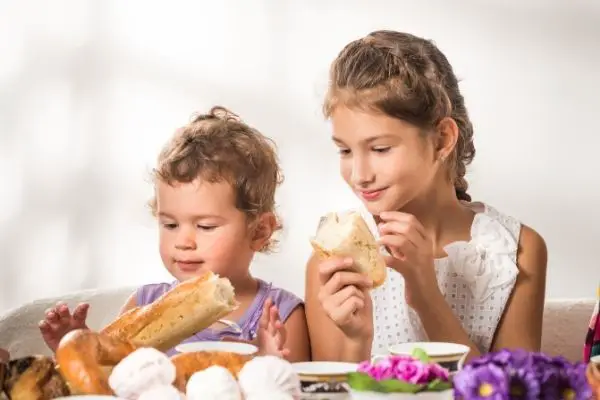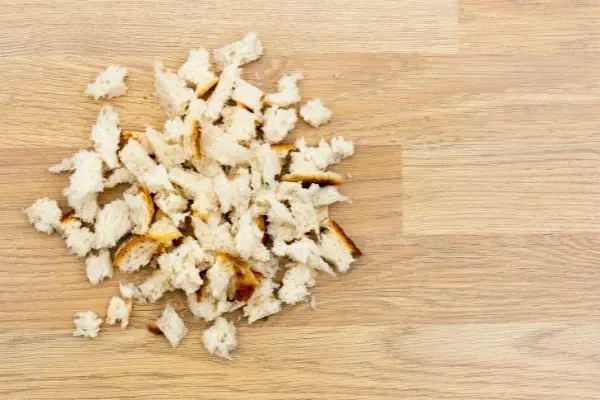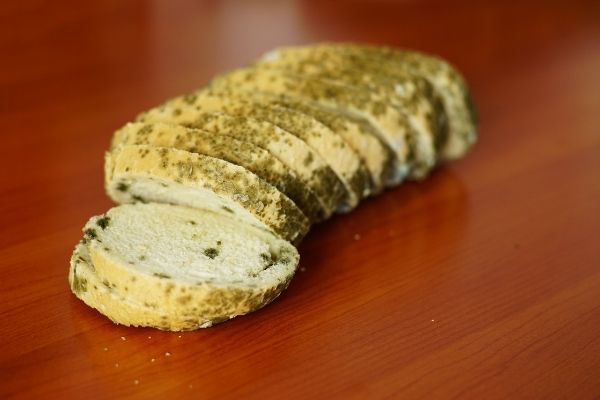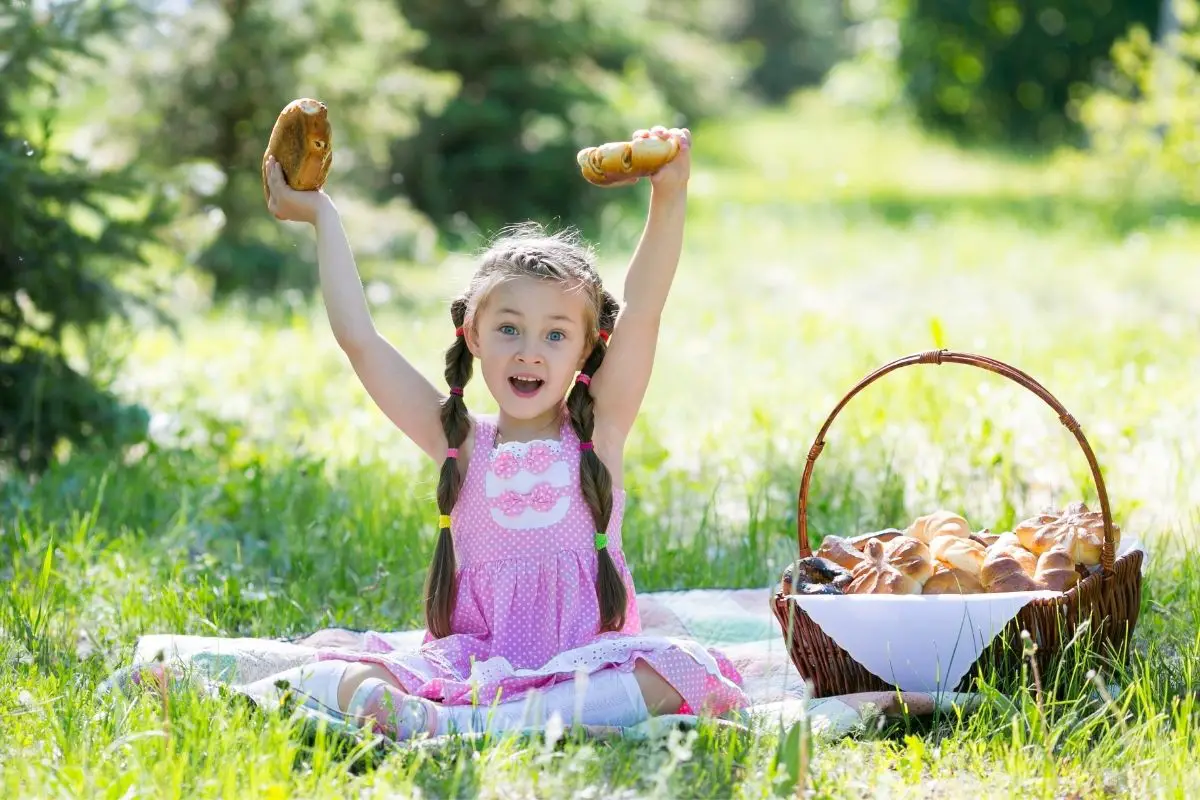Can You Compost Bread? | Expert Tips on Reducing Kitchen Waste at Home
Experienced gardeners know that some kitchen scraps are forbidden from going into a traditional compost bin — dairy, meat, oil, and eggs are some of the worst culprits.

Tossing these items into your compost pile or bin could mean starting the entire thing over from scratch as they may attract ‘bad’ bacteria or lead to a pest infestation! Eww!
Luckily, there’s Bokashi composting – a system that allows you to pretty much compost anything safely. All the ‘non-safe’ food for my garden compost bin goes into my Bokashi bucket first for the initial breakdown process.
On the other hand, if you don’t have a Bokashi bucket (yet!), the best household items to compost include fruits and vegetables, eggshells, nutshells, and coffee grounds.
But some food items fall into a gray area, leading to important questions like, “Can I compost bread in a traditional compost bin?”
While bread is compostable, fresh slices are likely to attract pests to your compost. Instead, the best way to compost bread, if you don’t have a Bokashi bucket, is to let it go stale or even grow mold first.
Is Bread Compostable?
Yes, bread is compostable.
Most bread will break down very quickly when placed in a compost heap or bin.
Despite this, many gardeners choose to exclude bread and other grain products from their compost because the benefits aren’t worth the risks.
Why Shouldn’t You Compost Bread?
Bread is a wonderful source of carbohydrates. Unfortunately, that means it is far more likely to attract pests like rodents and insects than other kitchen scraps.
Pests rarely cause damage to the compost itself. But letting these animals set up camp in your backyard could have unwanted consequences for you and your neighbors.
Rodents, bugs, and even birds drawn in by your compost pile might soon make their way to your garden beds. These critters can also move into residential buildings like sheds, garages, and even homes.
Once you have a pest problem, it’s not easy to fix. So it’s easy to see why many people would avoid composting grain-based products altogether.
What is the Best Method for Composting Bread?

To keep pests away from your compost, you want to ensure bread and similar food items decompose as quickly as possible.
I find Bokashi to be the best method for bread! The ‘good’ bacteria present in Bokashi composting is very fast to breaking bread down and, by the time it ends in the compost bin or buried in the garden, it is far less attractive to pests!
But there are other alternatives!
Allowing bread to turn stale before composting will make it less attractive to scavengers. Breaking the bread into very small pieces will also speed up the composting process.
You should compost bread scraps by placing them in the center of your pile where the temperature is highest. Covering the bread with other composted materials will prevent wild animals from finding it.
A tumbler is also a good option for composting bread. These closed containers keep out pests while rapidly breaking down the food scraps inside. The tumbling action will make the breaking down quicker by keeping the temperature hot!
Is Bread Brown or Green Compost?
Maintaining a balance of green (nitrogen-rich) and brown (carbon-rich) materials is important to the health of your compost pile.
While bread is (usually) brown in color, don’t be fooled. Bread is relatively high in nitrogen and is best treated as a green material.
The ideal ratio of green to brown material depends on many factors. If you’re new to composting, a ratio of 60% green matter and 40% brown matter is a good place to start.
Pair your bread scraps with brown materials like dry leaves, cardboard, straw, or sawdust.
Frequently Asked Questions
Is moldy bread safe for compost?
Don’t throw away that moldy bread!
Molding bread is even better for the compost pile than the fresh stuff. There’s no need to worry about the mold contaminating your compost or encouraging the growth of harmful pathogens.
When my bread goes moldy, I would rather throw it in the compost bin directly bypassing my Bokashi. The harmful green moldy can be dangerous for the Bokashi system.

The formation of mold is a natural part of decomposition. And, since decomposition is the ultimate goal of composting, moldy bread will break down extremely quickly.
Is dairy-based bread good for compost?
Dairy products can be a tricky subject for home composters. While these items can technically be composted, they tend to attract pests. Dairy also has a lot of fat, which can impede natural decomposition and produce foul odors.
Generally, bread products that contain small amounts of dairy (like butter, milk, or cheese) are safe to compost. But you should avoid composting bread containing any significant amount of dairy.
Bokashi is again an exception and dairy is perfectly fine to go in it!
Can you compost bread dough?
Yes.
Uncooked bread dough will break down fairly quickly in a composting environment. However, be careful adding dough to your compost as it may form dense clumps before decomposing. It’s best to mix the dough with other dry ingredients before adding it to your compost.
Is sourdough starter compostable?
Yes, you can place unused sourdough starter in your compost. T
his is a great way to avoid wasting excess starter when you don’t have time to bake (or the starter gets a little out of hand!).
Sourdough starter will decompose very quickly, so it is less likely to attract unwanted pests than baked bread. And it contains lots of starch, which the beneficial microbes in your compost pile will love.






